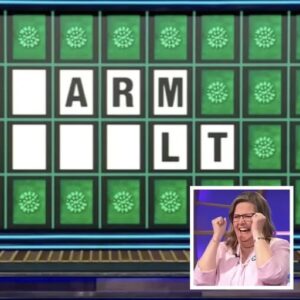When the call came in, I didn’t expect much—just another welfare check. The neighbors had reported loud arguing, then silence. By the time we arrived, the house was eerily quiet.
My partner knocked. No answer. We announced ourselves. Still nothing. Then, just as I was about to radio it in, the door creaked open.
A woman stood there, disheveled, eyes red and swollen. And in the background, on a worn-out couch, was a baby.
A woman stood there, disheveled, eyes red and swollen. And in the background, on a worn-out couch, was a baby.
Tiny. Crying. Alone.
She mumbled something about needing a minute, but her hands were shaking. My gut told me something was off. While my partner spoke with her, I walked inside, following the sound of those desperate little cries.
That’s when I saw him—barely a few months old, his face red from screaming. His tiny hands clenched into fists. His bottle was on the floor, out of reach.
Without thinking, I scooped him up. He was hungry. Probably hadn’t been fed in hours. I grabbed the bottle, wiped it off, and gently pressed it to his lips.
He latched on immediately, his whole body relaxing.
That’s when the woman—his mother—let out a shaky breath and whispered something I wasn’t ready for.
“I… I don’t think I can do this anymore.”
I looked up at her. She wouldn’t meet my eyes. My heart pounded.
I had a feeling this was about to turn into something much bigger than just a welfare check
A woman stood there, disheveled, eyes red and swollen. And in the background, on a worn-out couch, was a baby.
She mumbled something about needing a minute, but her hands were shaking. My gut told me something was off. While my partner spoke with her, I walked inside, following the sound of those desperate little cries.
That’s when I saw him—barely a few months old, his face red from screaming. His tiny hands clenched into fists. His bottle was on the floor, out of reach.
Without thinking, I scooped him up. He was hungry. Probably hadn’t been fed in hours. I grabbed the bottle, wiped it off, and gently pressed it to his lips.
He latched on immediately, his whole body relaxing.
Promoted Content
That’s when the woman—his mother—let out a shaky breath and whispered something I wasn’t ready for.
“I… I don’t think I can do this anymore.”
I looked up at her. She wouldn’t meet my eyes. My heart pounded.
I had a feeling this was about to turn into something much bigger than just a welfare check.
Hypertea
Her name was Marisol. She couldn’t have been more than twenty-five, though exhaustion carved deep lines around her mouth and eyes. Her voice trembled as she tried to explain herself. “It’s not that I don’t love him,” she said, glancing at the baby now sleeping peacefully in my arms. “It’s just… everything is falling apart.”
Marisol told us her husband—or rather, the baby’s father—had left six months ago. No note, no warning, just gone. Since then, she’d been juggling two jobs while trying to care for their son, Mateo. But one job ended abruptly when the company downsized, leaving her barely able to keep food on the table or pay rent. Sleepless nights turned into days where she felt like she couldn’t breathe.
“Sometimes,” she admitted, tears streaming down her face, “I sit here staring at him and wonder if he’d be better off without me.”
The room seemed smaller suddenly, heavier. My partner stepped closer, his expression softening. “You’re not alone,” he said firmly. “There are people who can help.”
But Marisol shook her head. “I’ve called social services before. They put me on a waitlist. I’ve tried charities, but they only give so much. It’s never enough.”
Her words hit hard. This wasn’t laziness or neglect—it was desperation. And yet, legally, we couldn’t ignore what we’d seen tonight: an underfed infant left unattended. If we reported this, Mateo might end up in foster care, and Marisol could face charges. That thought made me sick to my stomach.
Then, something unexpected happened.
As we talked, Mateo stirred in my arms and let out a soft coo. Marisol’s face lit up for half a second before crumbling again. In that moment, I realized how much she loved him despite her struggles. She wasn’t asking for pity; she needed support. Real, tangible help.
I glanced at my partner, silently pleading with him to trust me. Then I turned back to Marisol. “What if there was another way?” I asked. “What if someone could step in—not to take Mateo away—but to teach you how to manage all of this?”
Her brow furrowed. “What do you mean?”
“There’s a program,” I explained carefully. “It pairs struggling parents with mentors—people who’ve been through similar situations and come out the other side. They help with budgeting, childcare tips, even finding resources like daycare assistance or food banks. Would you consider letting us connect you with them?”
For the first time since we arrived, Marisol looked hopeful. “Really? You’d do that?”
“We’ll start right now,” I promised. I pulled out my phone and dialed the number of a local nonprofit I knew ran such a program. After explaining the situation, they agreed to send someone over within the hour.
While we waited, Marisol opened up more. She showed us Mateo’s nursery—a cramped corner of the living room with a crib held together by duct tape. She confessed how lonely she’d felt these past months, too ashamed to ask friends or family for help. “I thought I was supposed to handle everything on my own,” she whispered.
“You shouldn’t have to,” I replied softly. “No one should.”
When the mentor arrived—an older woman named Rosa who radiated warmth and kindness—Marisol visibly relaxed. Rosa listened patiently as Marisol recounted her story, nodding knowingly. Then she offered practical advice: applying for SNAP benefits, enrolling Mateo in WIC, connecting with a nearby church group that provided free meals and babysitting services.
By the time we left, Marisol seemed lighter somehow, less burdened. As we walked to the car, my partner gave me a sideways look. “That was risky,” he said. “If anyone finds out we didn’t report this…”
“They will,” I interrupted. “Because I’m going to document every step of it. Marisol wants to change, and Mateo deserves a chance to stay with his mom. Isn’t that why we do this job—to make things better, not worse?”
He nodded slowly. “Still, you’re taking a big risk.”
“It’s worth it,” I said simply.
Over the next few weeks, I checked in on Marisol whenever I could. Each visit revealed progress: new clothes for Mateo thanks to donated items, fresh groceries stocked in the fridge courtesy of the church group, and a part-time job lined up at a daycare center recommended by Rosa. Most importantly, Marisol looked happier. Healthier. Like she finally believed she could get through this.
One evening, as I rocked Mateo to sleep during a visit, Marisol handed me a letter. “This is for you,” she said shyly. Inside was a heartfelt thank-you note, along with a drawing Mateo had scribbled—stick figures representing our makeshift family unit.
Tears welled in my eyes. “You don’t have to thank me,” I told her. “Just keep doing what you’re doing.”
Months later, I received an invitation to Mateo’s first birthday party. The transformation was astonishing. Their home was brighter, cleaner, filled with laughter. Friends and neighbors surrounded them, offering love and support. Marisol introduced me proudly to everyone as “the officer who saved us.”
That day, watching Mateo smash cake into his chubby cheeks while Marisol beamed beside him, I understood something profound: sometimes, helping someone means seeing beyond their mistakes and believing in their potential. It means giving them tools instead of punishments, compassion instead of judgment.
Life Lesson:
We all stumble. We all face moments when the weight of the world feels unbearable. But true strength lies in reaching out—and in being willing to lend a hand when someone else falters. Empathy changes lives. Don’t underestimate its power.
If this story resonated with you, please share it with others. Let’s spread kindness and remind each other that none of us are truly alone. ❤️





